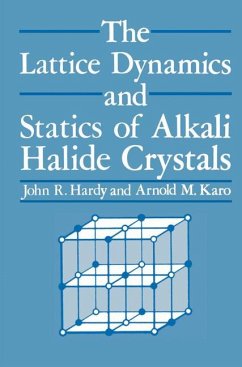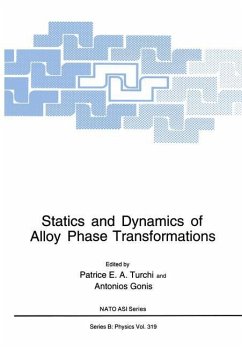
The Lattice Dynamics and Statics of Alkali Halide Crystals

PAYBACK Punkte
20 °P sammeln!
Lattice dynamics is a classic part of solid state physics and the alkali halide crystals are classic materials. Nearly every new technique in many-body theory has first been applied to lattice-dynamical prob lems, and much of our present understanding of the physics of real crystals has its origins in pioneering work, both experimental and theoretical, carried out between 1920 and 1950 on alkali halide systems. The object of the present text is to present a unified coverage of that part of physics where these two areas overlap and to extend this coverage somewhat in order to include not merely...
Lattice dynamics is a classic part of solid state physics and the alkali halide crystals are classic materials. Nearly every new technique in many-body theory has first been applied to lattice-dynamical prob lems, and much of our present understanding of the physics of real crystals has its origins in pioneering work, both experimental and theoretical, carried out between 1920 and 1950 on alkali halide systems. The object of the present text is to present a unified coverage of that part of physics where these two areas overlap and to extend this coverage somewhat in order to include not merely the dynamical behavior of alkali halides but also their static behavior. Specifically, we discuss the manner in which these materials respond to the presence of point imperfections. The rationale for this extension is simple: mechanics includes both dynamics and statics and a text which discusses the former should also discuss the latter. Two other unifying themes are also present; the datapresented are largely the result of our long collaboration in this area, and the work is a partial history of the impact of digital computers on lattice dynamics, an impact which parallels their impact on the whole of solid state physics. Since this work is largely an account of model calculations, we have stressed the use of the simplest possible model at each level of sophistication and its uniform application to the crystals discussed.














